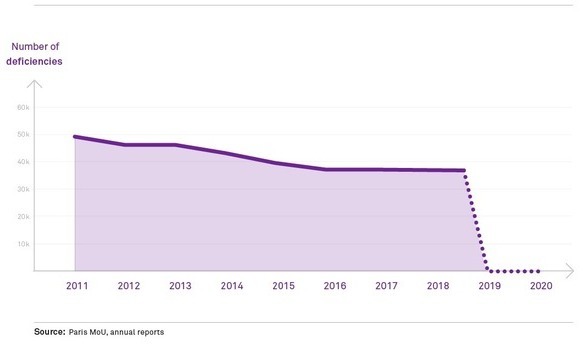The Paris MoU has decided to restrict access to its PSC data, from 1 January 2019, which means that the data will no longer be available to download – a basic requirement to enable various types of risk modelling. Additionally, other MoUs may follow. In this regard, Maritime risks insights firm Winward argued that this poses a serious threat to maritime safety and security.
Port State Control (PSC), which applies globally, allows for ships to be inspected when they arrive in port, to ensure they comply with safety standards. Then, inspection results are made publicly available by regional bodies – such as the Paris MoU for Europe – to further promote maritime safety and security. Many organizations, including marine insurers, border protection and charterers, use PSC records to assess risk for ships and fleets, but, without PSC data, it will be harder to distinguish between high- and low-risk vessels.
Today, PSC is one of the only data sources that reflect a ship’s dynamic risk. Without fresh PSC data, predictions will become increasingly biased over time. Moreover, it may create problems of trust and continuity for decision making; for example, a fleet previously rated “safe” might suddenly find itself rated as “high-risk”, or vice-versa.
In practice, the firm explains, losing PSC data could mean more smuggling going undetected; insurers may write policies that do not reflect all the risks; and more substandard ships may be allowed to sail, endangering other assets, the environment and, even lives.

What to do
- Check how PSC data is weighted in your models: This is key if your models rely on risk scores from third-party data providers.
- Simulate the potential impact on your decision-making: Compare model outputs with and without PSC data, and look for areas of vulnerability.
- Implement new sources of dynamic data: Explore further augmentation of risk models by adding new, dynamic data sources.




























































